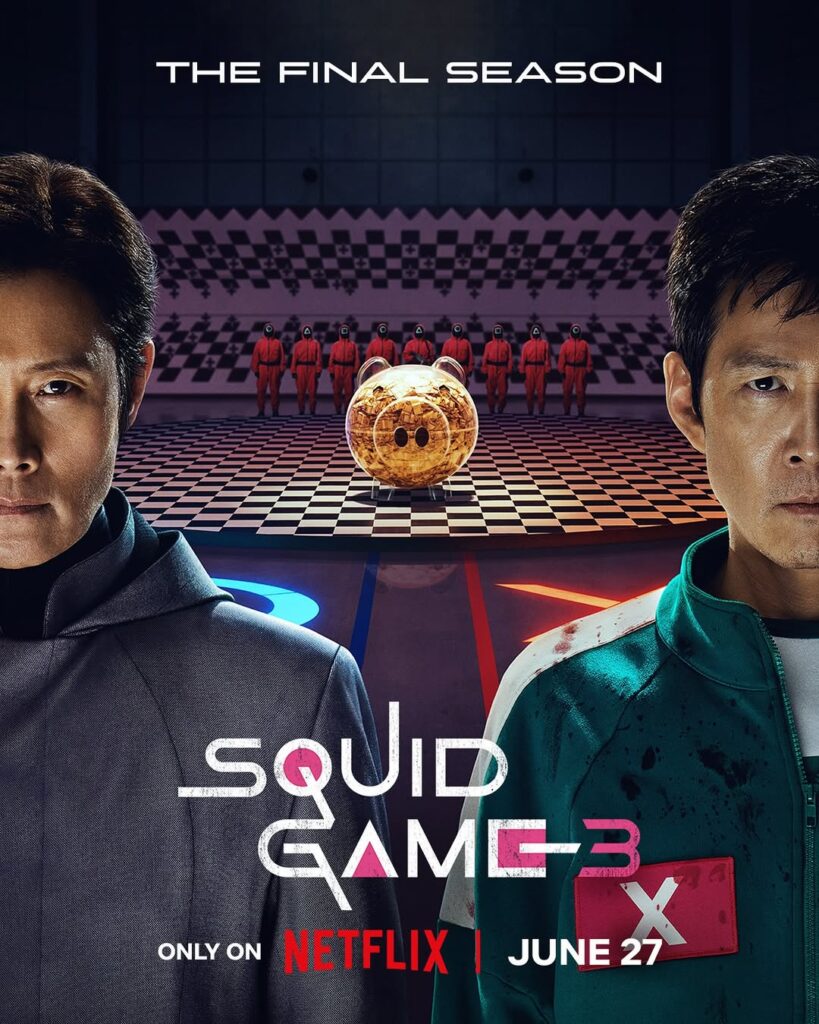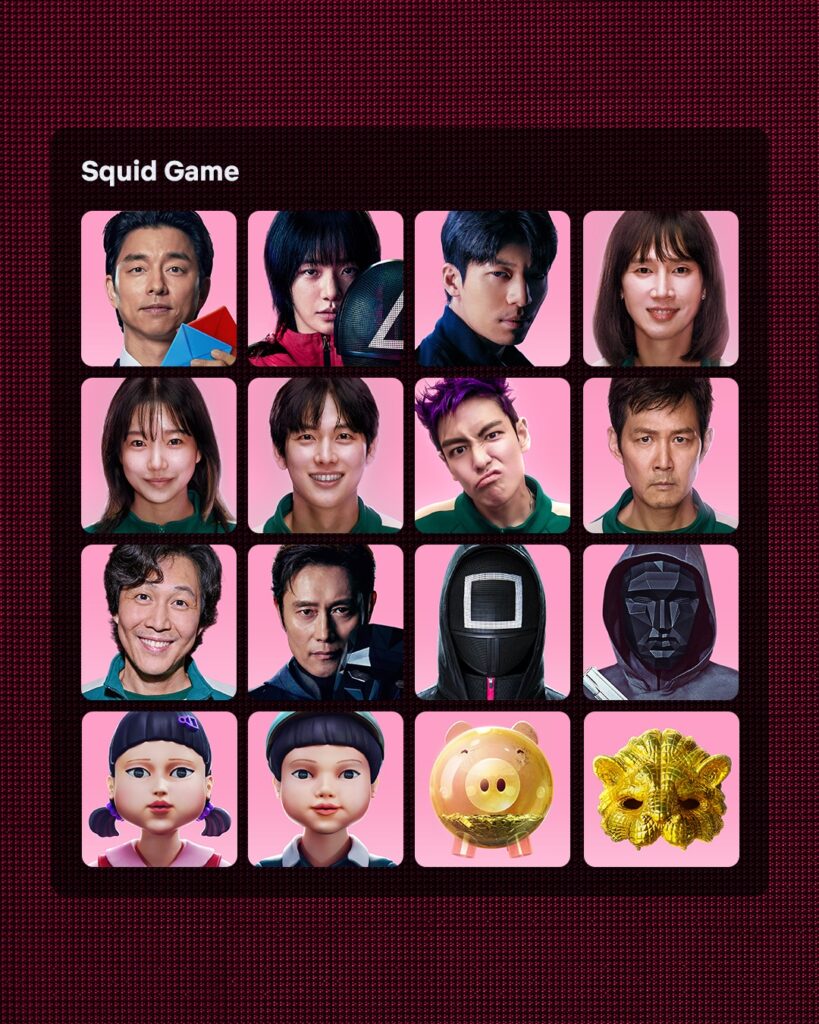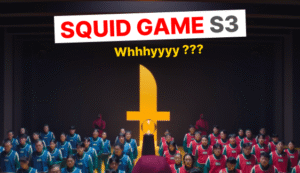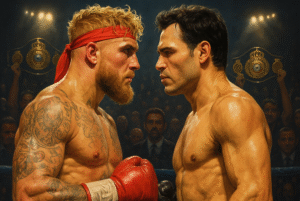As Squid Game Season 3 wraps up, the global conversation around the series is louder than ever. The show’s latest season has not only delivered shocking plot twists and emotional gut-punches, but also deepened its commentary on society, power, and human nature. While many fans are dissecting the ending, the true legacy of Season 3 may lie in the questions it raises and the cultural impact it continues to have.

A Deeper Dive into Social Commentary
From the start, Squid Game has been lauded for its unflinching look at economic inequality and the desperation it breeds. Season 3 pushes these themes even further, introducing a new cast of characters that reflect the evolving anxieties of modern life. Among the contestants are crypto YouTubers, single parents, gig workers, and refugees—each bringing their unique struggles and perspectives to the deadly competition.
The games themselves have also evolved, mirroring the complexities of today’s society. Challenges are no longer just tests of strength or luck; they now probe psychological endurance, ethical boundaries, and even digital literacy. This shift not only keeps the audience on edge but also reinforces the idea that survival in the modern world requires more than brute force—it demands adaptability, cunning, and sometimes, compromise of one’s own morals.
The Front Man’s Unraveling: Power, Guilt, and Family
A standout storyline this season is the unraveling of Hwang In-ho, the enigmatic Front Man. Once a faceless enforcer of the Game’s rules, In-ho is now forced to confront his own complicity and the cost of his choices. His interactions with his brother, Jun-ho, are fraught with tension and regret, offering a rare glimpse into the personal toll of wielding unchecked power.
In-ho’s arc is a meditation on guilt and redemption. His decision to deliver Gi-hun’s winnings to his daughter and his final acts of defiance against the VIPs suggest that even those at the top of oppressive systems can experience moments of conscience. It’s a reminder that the structures sustaining the Game are built not just on cruelty, but also on the silence and participation of those who know better.

Gi-hun’s Sacrifice: Breaking the Cycle
Perhaps the most poignant moment of Season 3 is Gi-hun’s ultimate sacrifice. Faced with the option to win by perpetuating violence or to break the chain by saving a newborn, Gi-hun chooses compassion. This act stands in stark contrast to the Game’s ethos and sends shockwaves through both the fictional world and the audience. It’s a bold narrative choice that challenges viewers to reconsider what it means to “win” in a world rigged against the vulnerable.
Gi-hun’s legacy, now tied to the fate of the baby he saved, lingers long after the credits roll. His choice serves as a beacon of hope, suggesting that even in the darkest circumstances, empathy and selflessness can disrupt cycles of harm.
Unanswered Questions and New Horizons
The Season 3 finale leaves several storylines tantalizingly unresolved:
- The Baby’s Future: With a newborn as the technical winner, the show raises profound questions about innocence, destiny, and the possibility of escaping the Game’s influence. Will she be protected, or will the system find a way to reclaim her?
- The Brothers’ Fate: The complicated relationship between Jun-ho and In-ho remains unsettled, hinting at further exploration of family, loyalty, and the price of survival.
- The Global Expansion: The surprise appearance of Cate Blanchett as a Recruiter in the closing moments teases the expansion of the Squid Game universe, possibly setting up an American adaptation or new international versions. This move not only excites fans but also underscores the show’s commentary on the universality of exploitation and competition.

Cultural Impact: A Mirror and a Megaphone
Squid Game’s influence extends far beyond the screen. The series has sparked global conversations about wealth disparity, the ethics of entertainment, and the psychological effects of relentless competition. Season 3’s nuanced portrayal of diverse characters and contemporary issues has only deepened its resonance with audiences worldwide.
The show’s iconic imagery—the masked guards, the haunting children’s games, the stark contrast between innocence and brutality—has permeated pop culture, inspiring everything from Halloween costumes to academic debates. Its success has paved the way for more international storytelling in mainstream media, proving that stories rooted in specific cultures can have universal appeal.
What’s Next for Squid Game?
As fans eagerly speculate about future seasons and spin-offs, the legacy of Season 3 is already taking shape. The series has set a new standard for genre storytelling, blending suspense, social critique, and emotional depth. Whether the next chapter takes place in Korea, America, or beyond, Squid Game’s core questions will remain: What are we willing to do to survive? Who benefits from our struggles? And is it possible to rewrite the rules of a game designed to keep us divided?
In the end, Squid Game Season 3 is more than a finale—it’s an invitation to reflect, to question, and, perhaps, to hope. The game may be over for now, but its echoes will be felt for years to come.







